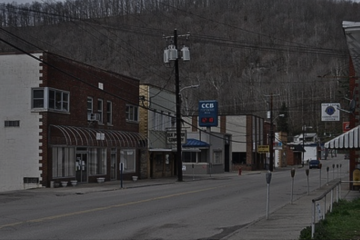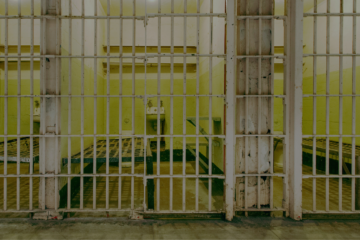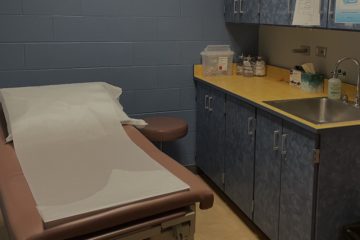by Caity Coyne
Whether intentional or not, federal policies expanded in 2021 to help families struggling through the second year of the COVID-19 pandemic seem to have provided evidence of a useful strategy for lifting people out of poverty: give them money to spend how they see fit and success will follow.
That year, child poverty and food insecurity rates in the U.S. fell to record lows, according to the U.S. Census Bureau. Housing insecurity was on the decline. Employment rates inched closer and closer to the pre-pandemic levels.
A significant driver of these gains? The enhanced child tax credit gave families an additional $250-$300 a month per child to spend how they see fit.
“That money being in their pockets allowed families to make better decisions about what worked for them,” said Cyndi Kirkhart, executive director of Facing Hunger Foodbank in Huntington. “It gave struggling families a chance to breathe, rest and look at what they needed.”
In West Virginia, where child hunger and poverty rates were already high, the enhanced child tax credits were a boon. Kelly Allen, director of the West Virginia Center on Budget and Policy, said the program benefitted nearly 95% of the state’s children, lifting at least 50,000 of the state’s poorest kids above the poverty line for the first time.
“It was important for our kids, and it was historic, really, to see those kinds of statistics,” Allen said.
Unfortunately, though – thanks to Republicans in congress aided by West Virginia’s Senator Joe Manchin – most families saw those payments stop in December of 2021. The decrease in money hit as inflation continued to skyrocket, bringing the cost of goods like food, clothing, and gas up with it.
“We know that the anti-poverty impacts of the expanded CTC are gone, and the poorest children in West Virginia – the ones who need it most, likely – are left out,” Allen said.
Some families don’t have enough tax liabilities to be eligible to receive the bonus, which reverted back to a tax credit instead of a direct deposit. Overall, the amount of money sent to eligible families is lower even as the cost of living grows.
There will likely be long-term impacts because of this, Allen said. And already, some of the nation’s most vulnerable children – including those in West Virginia – are bearing the brunt of the impact.
A study released in October by the Boston University School of Public Health saw a 25% increase in child hunger just a few weeks after the enhanced credit ended.
Kirkhart said her organization is seeing this first-hand in families they serve throughout Southern West Virginia, where poverty rates were already heightened before the pandemic and food insecurity, on average, is higher than in other parts of the state.
Today, Kirkhart said there is at least 25% more need in these communities than before the pandemic began in March 2020. When the child tax credit was expanded, the amount of need shrunk. The foodbank was able to invest in higher quality products like more fresh produce and meat.
Now, those benefits are gone as the increased cost of living directly affects supply chains and the foodbank. Increases in diesel prices mean the cost of holding mobile food giveaways – of which the organization does about six a week – soared. Meat, fresh dairy, and produce products are more expensive, so the foodbank acquires less to make the money go further.
“We are operating kind of like you would do for any kind of battle. We send a greater amount of resources to the areas of greater challenge. Now we have to focus on what are the higher areas of need and how do we meet that need because some communities are obviously struggling more than others and have fewer resources than others,” Kirkhart said. “It’s taking away from what we hoped would be an equitable distribution model because we can’t afford to be that model right now.”
Those in power in West Virginia have been largely silent on the escalation of child poverty and food insecurity. Instead, they advocate for cutting taxes to attract more businesses and people to the state. They are looking to exercise more control over West Virginia’s school system, where students struggle to keep up with those in other states.
And underneath this, childhood hunger is festering and growing.
“They keep talking about property tax cuts, income tax cuts – well, why don’t we make sure we’re getting resources for our kids?” Allen posed. “They want to attract more families here, more businesses. What about the families who are already living here and are struggling? Don’t they deserve some attention and assistance?”
Across the country, Allen said that several states have implemented state-level child tax credits that ensure kids and families have the resources they need. Nothing but a lack of will stops West Virginia from doing the same.
I’ve reported a good amount on poverty in West Virginia. No matter the story, there is always someone, somewhere, standing adamantly against giving people in poverty money to spend as they see fit. Often, those people are elected officials who want to implement work requirements or drug testing stipulations to any program that provides such funds, despite a body of research showing such requirements are of no benefit.
They will chastise you for even suggesting the idea of direct payment because “you don’t know where the money will go.” What if it goes to alcohol, they pose, or other “immoral” purchases?
How do we think our legislators would react if we demanded an itemized receipt showing how they spent the $20,000+ of taxpayer money they gain annually by being an elected officials in the state? I know there’d be a good amount of alcohol and bar tabs included, and I’m sure I’d have questions about other expenditures as well.
But, at the end of the day, it is not my business how they spend the money that we pay them. How is it their business to question what a family or individual sees fit to spend money on? How is it appropriate for them to stipulate what an acceptable investment is for families?
Kirkhart said that without the child tax credit money, families were spending more on food. But there were other investments too – car repairs that allowed adults to get to work, technology that made it easier for parents and kids to live. And yes, I’m sure some was spent on beer for the parents and sweets for the kids, and other amenities our state leaders would dictate inappropriate, but at the end of the day, the model worked.
Fewer children were hungry. More people were working – without a requirement to do so – and households often in tumult were able to stabilize.
Our state and the most vulnerable in it are not adequately supported when people without the lived experiences of their struggles try to dictate how they should survive, and it’s not fair to those who are more than capable of making their own choices.
The political leaders in West Virginia need to trust their constituents as we are forced to trust them. If they’re not going to do so, maybe it’s time the public considers making similar demands of their own to stipulate how they receive their salaries and what they’re allowed to spend them on. Fair is fair, after all.

Caity Coyne is our correspondent for The Health and Hunger Project.



0 Comments